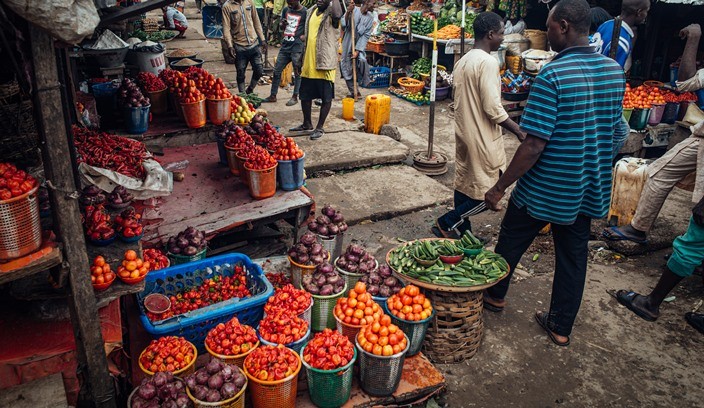The naira depreciated by 2.4% in March 2025, with demand pressure and global economic factors driving a fall in Nigeria’s foreign exchange market
[dropcap]T[/dropcap]he naira continued its downward spiral in March 2025, facing significant depreciation across both the Nigerian Autonomous Foreign Exchange Market (NAFEX) and the parallel market.
Also read: CORAN urges FG to sustain Naira-for Crude deal as petrol prices soar
The currency lost 2.4% and 2.6%, respectively, compared to the previous month, closing at N1,536.82/$ at the NAFEX window and N1,530.00/$ at the parallel market.
According to Afrinvest’s latest Monthly Market Report, the naira’s steady decline was influenced by persistent demand pressure, despite intervention from the Central Bank of Nigeria (CBN), which injected $668.8 million into the market to stabilise the currency.
However, the demand for foreign exchange, particularly from foreign portfolio investors and local corporations, remained robust, making it difficult for the CBN’s efforts to halt the naira’s slide.
AIICO Capital, in its own monthly report, confirmed that despite significant dollar sales by the CBN, the naira weakened by 2.97% month-on-month, ending March at N1,536.82/$, a noticeable drop from the N1,492.49/$ recorded at the start of the month.
The central bank’s interventions did help improve liquidity briefly, but demand continued to outpace supply. The report noted that the parallel market saw a depreciation of approximately N43.50/$ to N1,536.00/$, mirroring trends in the official market.
While the CBN attempted to stabilise the naira through its dollar sales, the currency remained under pressure throughout the month.
Despite a slight appreciation of 0.5 basis points in the final week of March, the naira faced ongoing difficulties, further aggravated by global economic factors.
On a quarterly basis, the naira depreciated by 7 basis points at the NAFEX window, while Nigeria’s external reserves fell by approximately $110 million to $38.31 billion.
The global context played a significant role in the naira’s decline. A key factor cited by both AIICO Capital and the CBN was the broader economic shifts triggered by US President Donald Trump’s tariff measures.
These global changes contributed to increased volatility in financial markets, leading to capital flight and additional pressure on Nigeria’s foreign exchange reserves.
In response to the growing volatility, the CBN sold an additional $197.71 million on April 4, 2025, to provide liquidity and support market stability.
In a statement, Omolara Duke, Director of the Financial Markets Department at the CBN, reaffirmed the central bank’s commitment to maintaining adequate liquidity and ensuring the orderly functioning of the forex market.
The sale ranged between N1,519 and N1,595.20/$, reflecting the continued fluctuations in the exchange rate.
Despite this intervention, market analysts observed heightened volatility. In the week following the CBN’s actions, the naira fluctuated significantly, with its value peaking at N1,570/$. Analysts noted that offshore demand surged midweek, partly due to weakening oil prices resulting from an OPEC+ supply increase and broader global risk-off sentiment.
This combination of factors led to a 1.97% weekly depreciation, closing the week at N1,567.02/$.
Looking ahead, the outlook for the naira remains uncertain. While the CBN is expected to continue providing liquidity in the short term, analysts have expressed concerns about the potential for further pressure on the currency.
The discontinuation of the naira-for-crude initiative could exacerbate the foreign exchange demand, as refineries and fuel importers increase their demand for dollars.
Cardinalstone, in its macroeconomic update, echoed these concerns, highlighting the risk of increased capital flight and higher deficit expectations due to declining oil production and global market conditions.
With oil prices down 14.2% year-to-date and domestic dollar demand on the rise, the naira’s future performance may remain volatile.
Marcel Okeke, former chief economist at Zenith Bank, also warned of the broader global economic implications, noting that the Trump-led tariff war could trigger inflation worldwide.
Nigeria, given its dependence on imports, is particularly vulnerable to the impact of rising imported inflation, further straining the naira.
Also read: Naira appreciates by over 8% following CBN’s new FX platform
As the foreign exchange market continues to feel the pressure, all eyes will be on the CBN’s next steps and the global economic landscape to determine whether the naira can recover or if further declines are inevitable.
Source: Read more at arise.tv





























